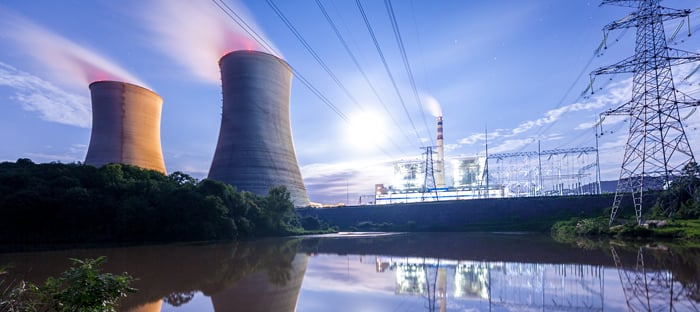Power your home
Enjoy price security with Safe Harbor fixed price energy plans

Power your business

Loading component...
Loading component...
Energy Resources

These days, most consumers are looking for innovative ways to save on their utility bills.
The good news is energy costs for 2024 are projected to stay level with 2022-23 rates. The not-so-good news is that it’s not much of a relief from the past few years when most American’s monthly residential utility bills increased by roughly 7.5%, according to the U.S. Energy Information Administration.
Some consumers can catch a break by installing energy-saving smart-home devices to curb the increases. And there are smart home ideas that can help you save on your energy bill, and other bills including insurance or water.
The question is, just how much can they help you save? Get ready to smarten up your energy savings game in ways you hadn’t thought of.
Many homeowners tend to focus on traditional measures like smart thermostats or energy-efficient appliances. However, one of the most overlooked aspects of home energy conservation is the potential threat of water damage caused by leaks or frozen pipes.
Leaky pipes could raise your electric bill, too. Most of that cost comes from your water heater, which uses electricity to heat cold water replenishing the tank. The cost varies depending on several factors, including the severity of the leak, the duration it goes undetected, the efficiency of your water heater, and local electricity rates. But a water heater that loses one gallon of water per hour can waste more than 1,000 kWh of electricity annually.
The unsung heroes in preventing these disasters are home leak detection systems, including freeze detectors, offering invaluable benefits that extend beyond water damage prevention.
Strategically placing water leak and freeze detectors under sinks, near water heaters, or around major appliances is the first line of defense in early issue detection. These devices act as silent guardians, constantly monitoring the surroundings for any signs of leaks or freezing. The ability to send timely alerts via text or email, even when homeowners are away, empowers individuals to take swift action, avoiding wasted water, costly repairs, and the potential headaches of dealing with insurance claims.
The advantages of water leak detectors go beyond mere damage prevention. Installing these devices may even qualify homeowners for a discount on their home insurance, adding a financial incentive to an already wise investment. By taking proactive steps to protect your home, you not only mitigate potential risks but also enjoy the peace of mind that comes with enhanced security.
For an extra layer of protection and convenience, consider pairing water leak detectors with smart shut-off systems. These systems automatically turn off your home's main water valve in the event of a leak, minimizing the extent of potential damage. This added layer of security ensures that even if you're not at home, your property is safeguarded from the devastating effects of water-related disasters.
In the quest for a more energy-efficient home, smart technologies continue to play a pivotal role, and smart sprinkler systems are emerging as unsung heroes. These systems go beyond the traditional realm of gardening, actively contributing to managing and optimizing energy usage for environmentally conscious homeowners.
Smart sprinkler systems use automatic irrigation, a revolutionary feature that adjusts watering schedules based on real-time weather forecasts. This advanced technology prevents unnecessary watering during rainy periods, ensuring that your garden receives the optimal amount of water without wastage. By avoiding irrigation during rainfall, these systems not only conserve water but also contribute significantly to energy savings.
One of the standout features of smart sprinkler systems is their ability to generate detailed water usage reports. By providing insights into consumption patterns, homeowners gain a comprehensive understanding of how water is utilized on their property. This data empowers users to make informed decisions about irrigation schedules and adjust settings to further optimize water usage.
These reports can be particularly enlightening, revealing patterns that might have otherwise gone unnoticed. For instance, homeowners can identify areas of their garden that may require less water or areas that need additional attention. Armed with this knowledge, users can fine-tune their smart sprinkler system settings, ensuring that water is distributed efficiently and only where it is needed.
Beyond the immediate benefits of water conservation, the energy savings achieved with smart sprinkler systems can translate into lower utility bills. By reducing unnecessary water consumption, homeowners contribute to a more sustainable and cost-effective approach to maintaining their outdoor spaces.
There’s no denying that the more-commonly thought of smart thermostat, power strips, light bulbs (and more) also can save a homeowner on energy bills.
Smart thermostats: Smart thermostats can save up to 10-12%1 on monthly energy bills by learning your preferences and adjusting settings based on outdoor conditions. Some models even track your smartphone's location, automatically adjusting the temperature when you're away.
Smart outlets or power strips: Smart plugins and power strips are beneficial for home offices and entertainment setups. Computers, computer monitors, televisions and game consoles are notorious for draining large amounts of phantom power while in standby mode. You can turn off the electricity flow to all these power-hungry devices with one simple click.
Smart LED light bulbs: Using 75%2 less energy than incandescent lights, LED light bulbs already are a wise choice. Make them LED smart bulbs and they are unbeatable for saving energy.
Whether you are using smart thermostats or power strips, also make sure you purchase products that have the ENERGY STAR® label. These products have been tested and have a track record of saving energy based on extensive field data.
Smart-home detection and management systems, along with smart devices, may help you save money, and the money saved can far outweigh over the longer-term the upfront cost of these gadgets.
Looking for more ways to save on your smart home’s energy bill? Check out these 11 tips for optimizing your smart home energy plan.
Energy Harbor is here to help you become an expert in energy efficiency around your home.
Enter your ZIP code to see energy plans in your area